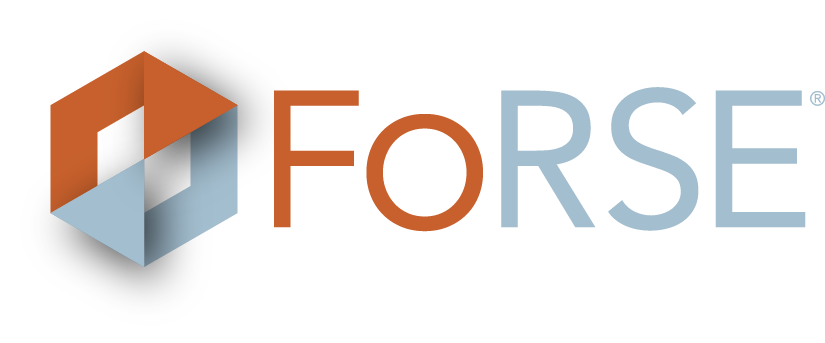Training opportunities for behavioral health professionals allow individuals to learn more about the tools and techniques used to support people with mental health and substance use disorders. There are many kinds of behavioral health training, but all place a focus on common mental health conditions and how to reduce the stigma surrounding mental health.
Common training activities teach about post-traumatic stress disorder, cyber bullying, depression, trauma, anxiety, and other mental health conditions that impact people every day.
The Importance of Reducing the Stigma around Mental Health
There is great importance in reducing the stigma around mental health conditions. A mental health stigma, referring to society’s disapproval of talking about or having a mental health crisis and condition, has to be overcome to allow people to see the help that they need for conditions like bipolar disorder, anxiety, and emotional distress.
The stigma around mental health may come from generalized beliefs or stereotypes, which may be broken down with better training and education. For example, it’s often claimed that those living with a mental illness are violent or dangerous, but the reality is that only a small number of people living with mental illnesses end up committing violent acts or crimes. Perhaps surprisingly, people living with mental health conditions are around 10 times more likely to become victims of crimes.
What Is Behavioral Health Training?
It all starts with prospects. These prospects can come from a variety of sources such as your digital advertising campaigns or referral partners. Once you’ve collected that prospect data, your marketing automation tool can help you segment audiences, target them with the right message, and send that message at the right time – with a completely personalized experience. Of course, marketing automation can be used well beyond the initial prospect experience and can be highly effective in keeping your customers, referral partners, and advocates engaged.
Typically, marketing automation contains audiences, triggers, and actions. Your team will build out the process with rules to execute these actions as the audience and triggers are met.
What is SUD Training?
SUD training teaches about substance use disorders. The core curriculum in a SUD training program may go over what a substance use disorder is, the kind of language to use when working with patients, screening and assessment tools for SUD patients, and pharmacotherapy options for substance use disorder treatments.
On top of learning about substance use disorders, SUD training will introduce professionals to electronic medical record systems and platforms to manage patient care. For example, Sunwave Health offers an enterprise EMR platform specifically for SUD treatment providers and behavioral health professionals, so they can have better patient engagement, stay HIPAA compliant, manage medications and track and monitor the success of patients they’re working with.
What Certifications Can I Get in Mental Health?
Certified clinical mental health counselors, or CCMHC, have board certification and provide the highest level of care in a clinical mental health treatment setting. To obtain this credential, you first have to be a national certified counselor (NCC). After that, professionals need an additional 60 semester hours of graduate-level academic credits from an accredited program. Coursework may cover aspects of care such as:
- Advanced clinical skills
- Clinical counseling for special populations
- Counseling for trauma, violence, or abuse
- Human sexuality counseling
- Addictions or substance abuse counseling
- Family or couples counseling
Professional students will need to complete at least nine semester hours of clinical training in a supervised environment. After graduation, 100 hours of postgraduate clinical supervision are necessary, as well as an endorsement from a professional colleague. This colleague must have a master’s degree or higher in a mental health field to be able to give an endorsement.
Certified Chemical Dependency Counselor
A licensed chemical dependency counselor assists those with substance use disorders learn how to cope with addiction. They focus on teaching interpersonal skills and empathy.
Certified Rehabilitation Counselor
A certified rehabilitation counselor gets their certification at the post-graduate level. To qualify for this certification program, professionals have to be enrolled in or a graduate of a master’s level rehabilitation or clinical rehabilitation program that is accredited by CACREP or CORE. They also need to have completed an internship of at least 600 hours under the guidance of a CRC.
How Can I Become a NAMI Trainer?
The National Alliance on Mental Illness offers a 15-hour program that introduces mental health professionals to the perspectives of people who are living with mental health conditions as well as what their families are going through. This encourages empathy and highlights important parts of treatment.
In this program, NAMI Provider teaches the realities of living with a mental health condition, how to have increased compassion for those struggling with their mental health, and the importance of your role in a patient’s care.
To become a NAMI certified trainer, you will need to take several classes and courses to become a trainer. These may include the family-to-family teacher training, peer-to-peer training, family support group facilitator training, connection training, NAMI basics training, Ending the Silence training, In Our Own Voice training, guardian advocacy, and more. Each of these courses has its own requirements. For example, guardian advocacy courses require just one day of training, while In Our Own Voice presenters are required to be adults over the age of 18 who are living with mental illnesses. This is a two-day training program.
The nice thing about the NAMI programs is that the organization does look for volunteers to work with them. As a result, these classes help volunteers, many of who do not have college-level behavioral health training, gain more insight into behavioral health and building better customer relationships and connections.
Can I Get a SAMHSA Certification?
The Substance Abuse and Mental Health Services Administration offers several certifications. One is the certification of opioid treatment programs, or OTPs, which requires applicants to go through the accreditation process and to meet the requirements set by law. A SAMHSA certification as an accredited and certified opioid treatment program is for agencies rather than individuals in most cases.
See How Sunwave Helps In a Behavioral Health Setting
Sunwave Health’s SUD and EMR support system helps behavioral health professionals stay organized to better support their patients as well as keep patient records and treatment data safe and secure. Patients and clients need help to learn more about their mental health conditions and to see the progress they have made over time, which is possible with the right EMR system.
Resources
Always be sure to check on your state’s requirements for each of the above certifications and licensure information. The below ACA website will allow you to search by state whether you are looking to be a Certified Professional or Licensed Professional:
https://www.counseling.org/knowledge-center/licensure-requirements



